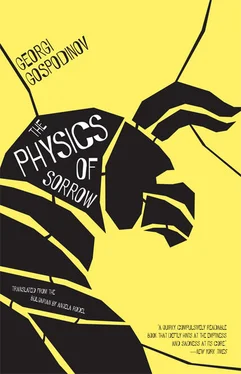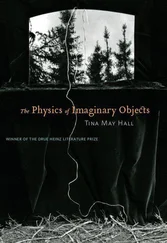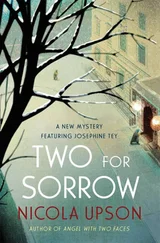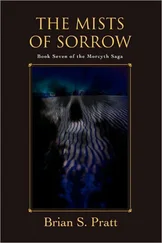What now? Bulgarian joy is quickly replaced by fretting. They woke up the parents and they all started asking the risen one how it had all happened and what are we going to do now? That he’s safe and sound is all very well and good, but it creates some mighty big headaches as well. The resurrected soldier was so exhausted that he couldn’t explain a thing. As the third rooster crowed and day began to break, the family council made the only possible decision — to stick him in the cellar, both so he could sleep and so that no one would see him. Thus the returning Bulgarian soldier spent his first night at home — as well as all the following days and nights over the course of several months. He simply exchanged one basement for another.
Those were troubled times. The communists were roaming the country, killing for the slightest infraction. The soldier’s family was in any case on the list of village high-rollers, thanks to their three cows, herd of sheep, and nice old-fashioned cart with the rooster painted on the back. But what sin could the soldier possibly have committed? I’ll tell you what. First of all, he lied to the authorities about his heroic death, for which he had been crowned with a medal and glorified on the village memorial. The other thing that would earn him a bullet straight away was separation or desertion from his army unit. To disappear from your regiment for four months, without death as an alibi, and then to return a month after the end of the war without the weapon and uniform issued to you likely goes beyond the imagination of even the most merciful political commissar. What could the soldier possibly say in his own defense? The truth? Admit that he had spent four months in a Hungarian town with a lonely young widow, hiding in a basement long after the town had been liberated by his countrymen? Who, in fact, were you hiding from, comrade corporal?
The resurrected man’s wife continued to wear black. To her, he told almost the whole truth. He simply added thirty or so years to the compassionate Hungarian lady’s age and everything fell into place. The elderly Hungarian woman had lied to him about the continuation of the war and a German siege, because her motherly heart had wanted him, the Bulgarian soldier, to replace the son of the same age that she had lost.
His wife was a decent and reasonable woman, she was glad that her husband had returned alive and did not wish to know more. Even when she carelessly opened that envelope which the postman, her brother’s son, had furtively pressed into her hands, with only a baby’s handprint and an unreadable address, she didn’t say anything, but painstakingly sealed it up again, gave it to her husband and continued wearing her widow’s weeds.
A year later, half-blind from staying in the dark, the man came out of the cellar and went to give himself up. He gave them the scare of their lives. His beard and hair had gone white during that year, they could hardly recognize him. Where did you come from, the mayor asked him. From the other world, the soldier said and that was the most precise answer. He quickly told some poorly patched together story about how he fell prisoner to the Germans during the attack on H., how he was sent to work in the salt mines behind German lines, how they worked there, slept there — in the end the Germans were forced to beat a hasty retreat and dynamited the entrance to the mine. Of the thirty prisoners, he was the only survivor and found a hole to crawl out of. But from that long stay in the dark he had badly damaged his eyes and so, half-blind, he had traveled for months before reaching his home village. The mayor listened, his fellow villagers who had gathered around in the meantime listened. The women bawled, the men blew their noses noisily so as not to bawl themselves, while the mayor grimly crumpled his cap. Whether the people really swallowed that story or whether they wanted to save him is unclear, but in any case they all decided to believe it, and the mayor helped arrange things with the higher-ups in the city. They quietly reissued the dead man’s passport, cut off his wife’s widow’s pension, only his name remained on the memorial. And so as to do away with any lingering doubts, the mayor ordered the local bard to make up a song about the soldier who happily returned home a year and some after the end of the war. The song was a heroic one, according to all the rules of the time, telling at great length and breadth about “his dark suffering in the mine so deep” and how Georgi the Talashmaner (from the name of the village) “tossed the boulder to make his way, to see the sun” with Herculean strength. This was followed by his almost Odyssey-length return and the blind hero’s miraculous orientation toward his beloved homeland and the village of his birth.
Risen Georgi (that’s what they called him in the village) lived a long life, he saw well in the evenings, but by day was blind as a mole. He came out of the basement, yet the basement stayed inside him. During that year and a half, several lives had happened to him and it became ever harder for him to remember which of them was the real one.
Perhaps he had perished in that little Hungarian town after all? Was that Hungarian woman who changed the course of the war to keep him really young, or was she an old woman who had lost her son? How did he manage to escape from the German mine? And that which gave him no peace until the very end — the child’s hand, traced on an ordinary white sheet of notebook paper and sent in a postal envelope.
(Both versions end with the same small child’s hand, traced on a piece of paper. But stories always end in one of two ways — with a child or with death.)
A PLACE TO STOP
Let’s wait here for the souls of distracted readers. Somebody could have gotten lost in the corridors of these different times. Did everyone come back from the war? How about from the fair in 1925? Let’s hope we didn’t forget anyone at the mill. So where shall we set out for now? Writers shouldn’t ask such questions, but as the most hesitant and unsure among them, I’ll take that liberty. Shall we turn toward the story of the father, or continue on ahead, which in this case is backward, toward the Minotaur of childhood. I can’t offer a linear story, because no labyrinth and no story is ever linear. Are we all here? Off we go again.
A SHORT CATALOGUE OF ABANDONMENTS
The history of the family can be described through the abandonment of several children. The history of the world, too.
The abandoned child with the bull’s head, thrown into Minos’s labyrinth.
The abandoned Oedipus, the little boy with the pierced ankles, tossed on the mountainside in a basket, who would be adopted first by King Polybus, later by Sophocles, and in the end by his later father, Sigmund Freud.
The abandoned Hansel and Gretel, the Ugly Duckling, the Little Match Girl, and the grown-up Jesus, she wants to go to her grandmother’s house, he to his father’s.
In this line come — even without legends to back them up — all those abandoned now or in the past, and all those who shall be abandoned. Having fallen from the manger of myth, let us take them in, in this inn of words, spread beneath them the clean sheets of history, tuck in their frostbitten souls. And leave them in hands, which, as they turn these pages, shall stroke their frightened backs and heads.
How many readers here have not felt abandoned at least once? How many would admit that at least once they have been locked in a room, a closet, or a basement, for edification? And how many would dare say that they have not done the locking up?
In the beginning, I said, there is a child tossed into a cellar.
THE BASEMENT
For a long time, I used to watch the world through a window at sidewalk level. The apartments changed, but every one of them had one such low window. We always lived in the basement, the rooms were cheapest there. My mother, father, and I had just moved into yet another basement. Actually, into another “former basement,” as the landlord said. There’s no such thing as a former basement, my father replied sharply, and the landlord, not knowing how to take this, just laughed. In these parts, when somebody feels uncomfortable, he starts laughing, who knows why.
Читать дальше












